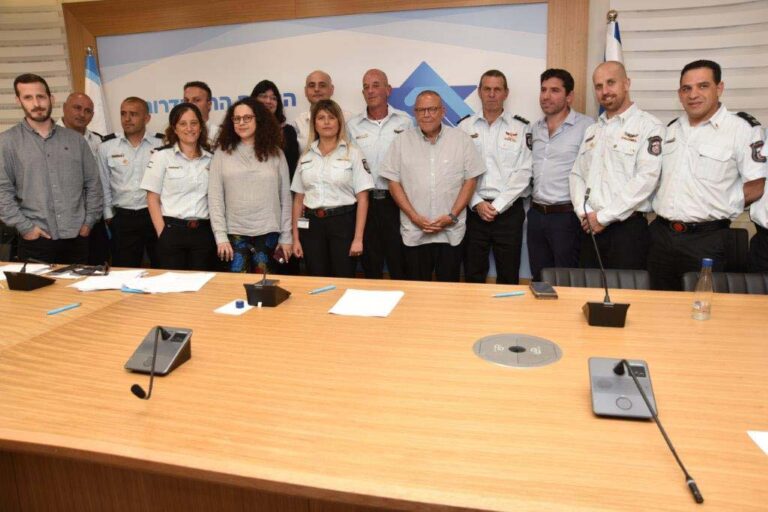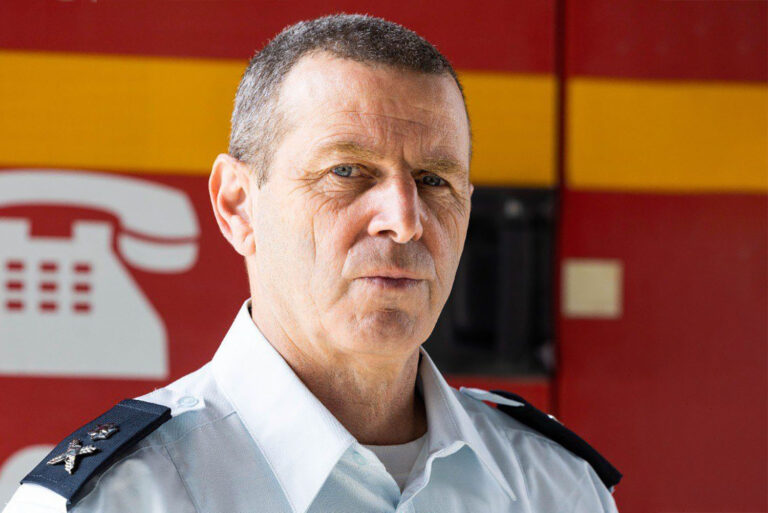
After years of deep dissatisfaction and struggles for better working conditions, the Histadrut, the Israel Fire and Rescue Authority, and the Ministry of Finance signed a collective agreement with Israel’s fire services last Thursday. At the center of the agreement is a salary model tailored to firefighters who take on key operational positions at the Fire and Rescue Authority headquarters, and a grant of thousands of shekels per employee (according to their scope of work in the period between 2019 and the date of signing the agreement).
The agreement includes:
- An annual grant of around 3,800 shekels ($1,136) per employee for meals.
- A pay increase due to a movement from shift work to daily pay for branch heads and department heads, as well as for workers who have moved due to an injury at work.
- A grant incentive model based on meeting goals and outputs for staff and management, in order to encourage employees to meet the goals and improve productivity in the Fire Authority.
- A regular supplement for pensioners in the department who retired between 2019 and April 2022.
“After difficult years in the fire department, during which the firefighters bravely faced many challenges in an array of arenas, today this important agreement comes to them,” said Histadrut chairman Arnon Bar-David at the signing of the agreement. “The employees of the Fire and Rescue Authority – like others in the various aid services in the country – bear on their shoulders an extremely important task. At times, this is done at risk to your lives, and out of a real sense of mission. This sacred act teaches us all what mutual aid means.”

“I welcome the fact that thousands of these dedicated workers are now being given a real pat on the back and rewarded for the tremendous sacrifice they make in their daily work for the citizens of Israel. I was, and remain committed to, improving the working conditions of firefighters – understanding that this will be good not only for them but for all of us.”
The agreement was signed about two months after the new fire commissioner, Chief Fire Officer Eyal Caspi took office. The last five years, under the tenure of the outgoing commissioner Chief Fire Officer Deddi Simchi, have been characterized by conflicts between the fire brigade leadership and the workers’ union, and a shaky working relationship.
The person responsible for the salaries at the Ministry of Finance, Kobi Bar-Natan, said in a statement: “I welcome the agreement that has been signed and thank all the partners who took part in the process. This is a very important agreement that will improve productivity in the Fire Authority. We have formulated a new salary model for employees in key operational positions, which will assist in recruiting skilled employees. Furthermore, a new wage model has been agreed upon, based on meeting goals and outputs in favor of improving the fire service for citizens.”

Chairman of the Union of Clerical, Administrative, and Public Service Employees (UCAPSE), Gil Bar-Tal said of the deal: “After a complex period, we managed to break through the barriers to negotiation and reach an agreement. This is an interim agreement and a sign of change towards broader regulation of the wages and rights of employees of the fire department, and negotiations for a comprehensive agreement will continue.”
Chief Fire Officer Eyal Caspi, the National Fire Commissioner, said: “This is the first agreement I have taken part in and I hope there will be many more in the future. There is no doubt that this is a historic moment for the fire department. This agreement is another step to take care of the employees of the department who are loyal, professional and quality workers who work 24 hours a day, 365 days a year.”

“The most important thing for me is the firefighters and the citizens of Israel – to lead the State of Israel forward in the field of security and national resilience,” Caspi continued. “We will work together with the workers, the officers, and the workers' union to march the fire brigade in the face of the challenges it faces. We are all committed to the well-being of the workers and together, hand-in-hand, we will continue to work to foster the human capital in the department.”
The chairman of the Firefighters’ Union, Avi Ankuri said, “To me, it is a huge and historic agreement and unequivocal proof that everything can be achieved through dialogue. This agreement brings a great deal to the workers. This is a sign of more collaboration to come. We have taken a new path. In two or three months, we will all enter into comprehensive negotiations for a comprehensive collective agreement for the 3,500 workers, and this will truly make history as a revolution.”
This article was translated to English by Jonathan Epstein.






